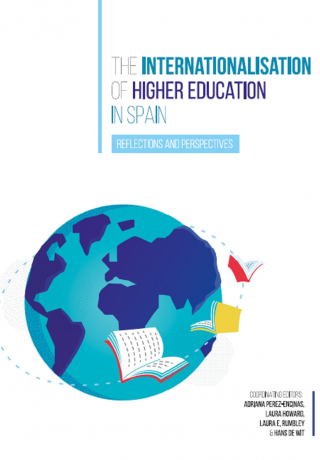
Liga para texto en versión en español: http://sepie.es/doc/comunicacion/publicaciones/SEPIE-ESP_internacionaliz...
“Spanish universities have invested great efforts in their internationalisation in recent years. As a result, the number of international students in our universities has increased steadily to over 85,000 registered during the academic year 2014/2015, of which almost half (42,000) were in the framework of the Erasmus Programme, now known as Erasmus+, which celebrates 30 years in 2017.
Furthermore, Spain has been the favourite destination for Erasmus students from all over Europe since 2001 and the top country within the EU for outgoing Erasmus students (over 65,000 a year and over 625,000 since the launch of the programme), which points to the unquestionable interest, both for institutions and Spanish students, in the internationalisation of education However, the activities of universities to position themselves in an increasingly competitive globalised world have not been limited to student mobility. Our universities have also developed modern internationalisation programmes that go far beyond this. The greatest challenge they face is the preparation of future generations for an international and internationalized world, for which there is no question about the need to prepare graduates with the best training. In this context, projects for the modernisation of study programmes have already been launched through the internationalisation of the curriculum and the promotion of international employability, developing internationalisation policies at the institutional level (internationalisation at home) to provide all members of the university community (students, teachers and administrative staff) with skills and talents in international matters in line with what has been called comprehensive internationalisation.
Within the framework of the objectives set in the Europe 2020 Strategy, the Spanish Government is strongly committed to internationalisation through a Strategy for the Internationalisation of Spanish Universities, adopted in 2015, on the basis of two clear premises: the need for close collaboration between all the actors involved and the recognition of the huge potential of our university system.
However, these remarkable actions developed by our educational centers have not always received visibility in international forums and the challenges faced by our universities in the constantly changing and interconnected world we live in today have rarely been addressed in depth.
Therefore, in line with the recognition of the potential of our universities outlined in the Strategy for Internationalisation, in this publication twelve experts at the international level of higher education offer their vision of the internationalisation of the Spanish university system.
In this way SEPIE intends, through these different points of view, to encourage debate around the factors that, in one way or another, affect the process of internationalisation of Spanish universities and their positioning within the framework of excellence and international quality.”
Pablo Martín González, Director of the Spanish Service for the Internationalization of Education (SEPIE)





